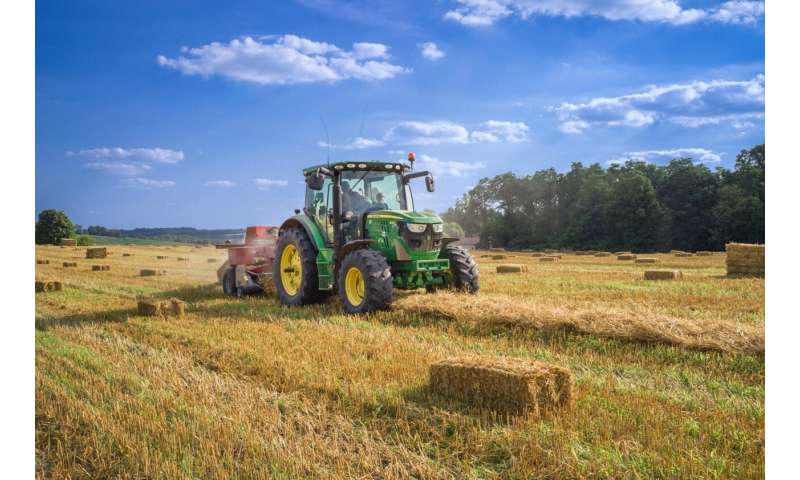Research shows veterinary deal would increase UK agrifood exports to EU by more than a fifth

A veterinary deal with the European Union could increase UK agricultural and food exports by more than a fifth, according to new research.
The study, conducted by the University of Bristol Law School and Aston University Center for Business Prosperity, analyzed the agricultural and veterinary aspects of trade deals around the world to estimate their impact on exports. It then modeled the potential impact of different types of agreement on UK exports to the EU.
Veterinary Agreements specifically focus on regulations and standards related to animal health and welfare, as well as to the safety of animal-derived products such as meat, dairy, and seafood. They aim to align, harmonize, or recognize veterinary requirements and certifications, and reduce the number of inspections between countries to facilitate the safe and efficient trade of live animals and animal products.
The EU–UK Trade and Cooperation Agreement (TCA), implemented in January 2021, eliminates tariffs and quotas but does not remove non-tariff barriers to trade. These can be particularly burdensome for agricultural and animal-derived food (agri-food) exports, involving complex rules and requirements, production of extensive documentation and veterinary checks.
The UK agri-food sector is a cornerstone of the UK economy, with exports worth £25 billion and employing 4.2 million people. Although the sector is growing overall, exports to the EU shrank in 2022 by 5% compared to 2019, in part due to the new trade arrangements. This has led to calls for an EU–UK veterinary agreement from business and agri-food organizations, including the Confederation of British Industry, British Chambers of Commerce, UK Food and Drink Federation, Chartered Institute of Environmental Health and British Veterinary Association.
Analyzing data from the World Bank on 279 trade agreements and export statistics from over 200 countries, the researchers found that shallow agreements, that went little further than provisions already covered by World Trade Organization (WTO) rules, had significant negative impacts on agri-food exports.
However, where trade agreements went beyond WTO provisions to include more commitments on sanitary and phytosanitary (SPS) measures (which aim to protect countries against risks relating to pests, diseases and food safety) and were legally enforceable, they had a robust, positive impact on exports, particularly exports of animal products and food.
Applying this to the UK–EU relationship, the team estimate a veterinary agreement that went beyond the existing TCA provisions would increase agri-food exports from the UK to the EU by at least 22.5%. Imports from the EU would also increase by 5.6%.
In the 203 countries studied for the research, positive effects of deep trade deals that included provisions on agriculture took between 10 and 15 years to manifest. But the UK might not have to wait so long, according to report co-author Professor Jun Du, Director of Aston University's Center for Business Prosperity.
"There is no blueprint out there that mirrors the UK–EU relationship. Most veterinary agreements are agreed as part of a trade deal between countries that haven't previously had close alignment and it takes a while for the benefits to take effect.
"Until recently, the UK had frictionless agri-food exports to the EU, so it's possible that a supplementary veterinary agreement to reduce some of the frictions created by Brexit could allow trade that previously existed to pick up again quite quickly."
However clear the economic arguments, the legal and political barriers to a veterinary agreement still remain. The researchers address these in their report, suggesting that the best format for the additional measures would be as a supplementary agreement to the TCA. The key question for the UK government in negotiating such an agreement would be what the EU demanded in return.
Co-author Dr. Greg Messenger, Associate Professor in Trade Law and Policy at the University of Bristol Law School, said, "The closest model is the EU-Swiss relationship, which sees Switzerland largely follow EU law. That's unlikely to be an option for the UK. As we wouldn't expect to eliminate all paperwork, we could both agree that our rules meet each other's standard for phytosanitary protection.
"As most of our rules are still essentially the same as the EU, that wouldn't require any major change, though we'd have to agree a greater level of coordination in relation to the development of new rules."
More information:
Jun Du et al, Enhancing the Brexit Deal: Exploring the Impact of a UK–EU Veterinary Agreement on Agri-food Trade (2024)
Provided by University of Bristol